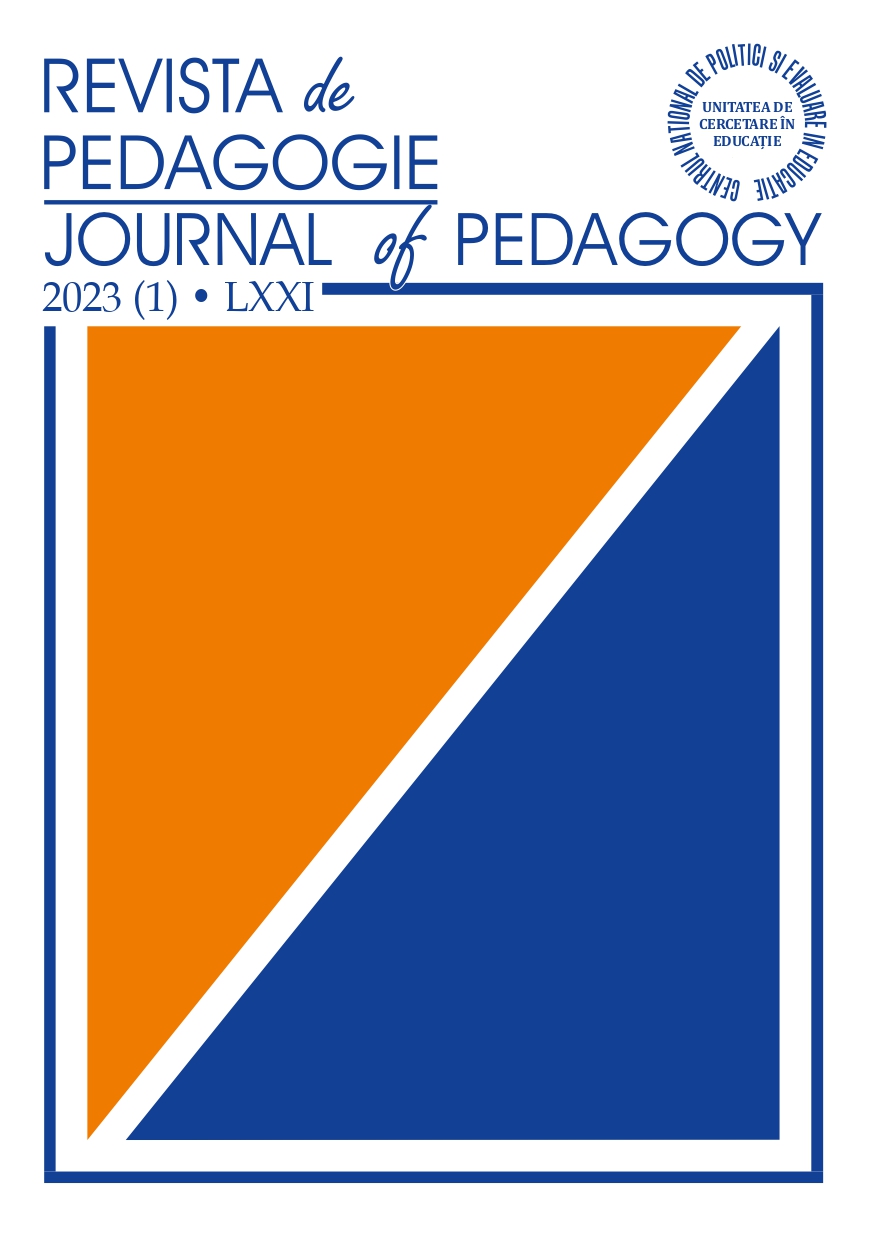EXPLORAREA UNOR SOLUŢII DE ÎMBUNĂTĂŢIRE A EDUCAŢIEI MUZICALE LA CICLUL PRIMAR ÎN ROMÂNIA
EXPLORING SOLUTIONS TO IMPROVE MUSIC EDUCATION AT PRIMARY LEVEL IN ROMANIA
Author(s): Daniel-Alex MilencoviciSubject(s): Music, School education, Methodology and research technology, Pedagogy
Published by: Centrul Național de Politici și Evaluare în Educație
Keywords: educational policies; music education; primary school; quality education;
Summary/Abstract: The Romanian national curriculum for primary education includes a number of school subjects that are taught by specialized teachers, e.g. foreign languages, physical education, religious education. Nevertheless, Music and movement represents a compulsory subject that requires advanced musical abilities and knowledge, yet the primary class teachers, who teach it, benefit from only short term initial training which we consider insufficient. The paper presents the results of a research into the opinions of the staff who teach. Music and movement in primary school as well as of those of experts regarding the improvement of this subject teaching.The study included two components: a qualitative analysis based on semistructured interviews with experts in sciences of education from pre-university and academic level (19 interviewees); and a quantitative analysis by means of an enquiry-based questionnaire among primary teachers from all over Romania (1.151 respondents). Data were collected between May 28th and June 26th 2021.The results show mainly positive views among the intereviewed sciences of education experts about the need to carry out training programs in music education for the primary school teachers. Also, 90% of the teaching staff who answered the questionnaire state that music education during pre-service teacher training should take at least two terms; more than 85% of the respondents state that, besides the school practicum that is ordinarily carried out, pre-service teachersshould also attend specialized practicum in the form of participation at concerts and art events in order to enrich their cultural experience.The present study aims to draw attention to possible solutions for pre-service teacher training so that music in primary school should have a stronger effect on young students’ education, on the future generation and on the future society overall. In this context, “neuroeducation” can offer evidence-based answers on cognitive transfer and attention activation, memory pathways and multisensory training (Curtis & Fallin, 2014). This vision gives music educators and teachers a new approach to music in the classroom, which is based on methods and means to stimulate the activity of both hemispheres of the brain; this could be achieved only through a high-standard musical training of future teachers.
Journal: Revista de Pedagogie
- Issue Year: LXXI/2023
- Issue No: 1
- Page Range: 237-259
- Page Count: 24
- Language: Romanian

